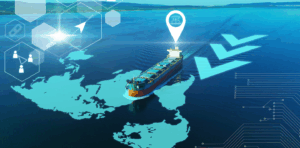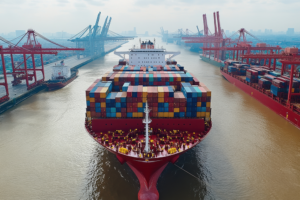International Trade Risks
Foreign exchange risk

Credit risk
Ethical risks
Political Risks

Shipping risks
Inside the trucks and ships (or even outside of them) many things can happen if there is not the right monitoring. Cargo tracking protects you from theft or vandalism. However, you will face problems like contamination, seizure, accident, loss, and breakage. Therefore, you need to monitor the condition of your cargo to see whether damage occurs to it, where it occurs, and why it occurs.
Despite all these risks, most are unavoidable because supply chain managers do not receive accurate information about what is happening in international trade. This lack of information makes them unprepared to deal with changes in currency, politics, the transportation process, etc. Moreover, not facing these challenges leads them to jeopardize their ethics and values by pursuing their goals. Therefore, if you want to start overcoming these problems, invest in digital technologies to get accurate and up-to-date information 24 hours a day.
Conclusion
In conclusion, while international trade presents numerous risks—ranging from foreign exchange and credit risks to ethical, political, and shipping challenges—these obstacles can be effectively managed with the right strategies and technologies. Identifying and categorizing these risks is the first step.
Grydd provides you with the digital and technological tools that deliver accurate information in real time and enable proactive decision making. Contact us and boost your supply chain management.
and boost your Supply Chain Management













